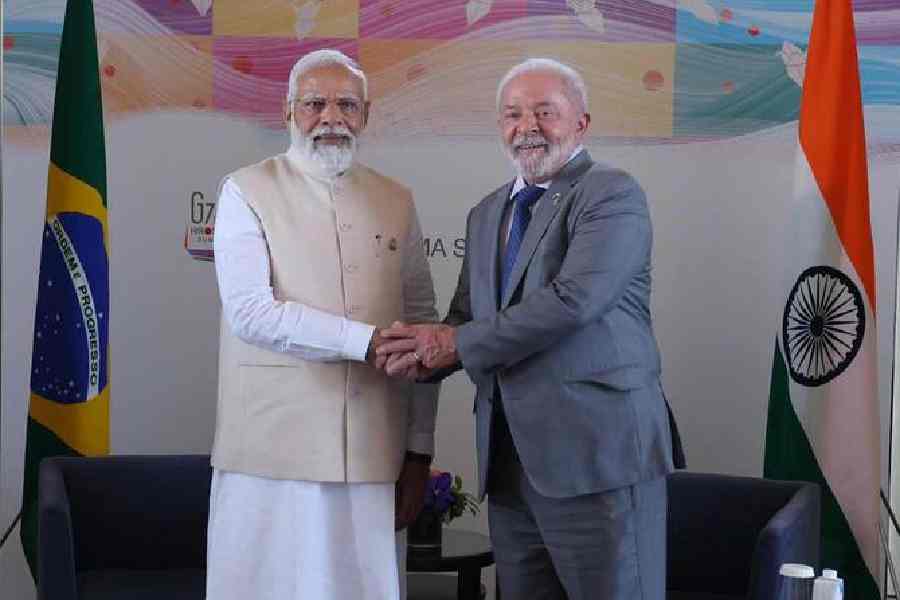Prime Minister Narendra Modi and Brazilian President Luiz Inácio Lula da Silva on Friday shared concerns on the situation in West Asia and expressed deep concern over terrorism, violence and loss of civilian lives there.
Modi's conversation with Lula da Silva comes amid the Israel-Hamas conflict.
Prime Minister Modi received a telephone call from the President of Brazil, a statement issued by the Prime Minister's Office said.
The two leaders shared concerns on the ongoing developments in West Asia, it said.
They expressed deep concern at terrorism, violence and loss of civilian lives and called for concerted efforts for early resolution of the situation, the statement said.
Prime Minister Modi conveyed India's full support for the success of Brazilian Presidency of the G20.
They also discussed ways to further expand bilateral cooperation in all areas in follow-up to their meeting on the sidelines of the G20 Summit in New Delhi, the statement said.
After his telephonic conversation with the Brazilian president, Modi said on X, "Had a good conversation on phone with President @LulaOficial. We are committed to deepen our strategic partnership.” "Shared our concerns on the situation in West Asia. Will continue to build on the successes of India's G20 Presidency as Brazil takes over next month,” he said.
Earlier this week, Prime Minister Modi and Iranian President Seyyed Ebrahim Raisi had exchanged views on the "difficult situation" in the West Asia region, with the PM expressing deep concern at the "terrorist incidents, violence and loss of civilian lives".
Modi's conversation with Raisi was part of his ongoing dialogue with top leaders of the region in the wake of the escalation in violence in the Israel-Hamas conflict.
Last week, Modi spoke separately to his British counterpart Rishi Sunak and UAE President Mohamed bin Zayed Al Nahyan during which concerns over terrorism and civilian deaths were shared.
Modi has also spoken with Israeli Prime Minister Benjamin Netanyahu, Palestinian President Mahmoud Abbas, Jordan's King Abdullah II and Egyptian President Abdel Fattah El-Sisi since the outbreak of the conflict.
The Israel-Hamas conflict erupted on October 7 when Hamas militants stormed into Israel from Gaza and killed more than 1,400 people and took some 240 others hostage. Israel responded with a campaign of blistering airstrikes, followed by a ground attack, according to media reports.
Except for the headline, this story has not been edited by The Telegraph Online staff and has been published from a syndicated feed.











